Dear friends,
As we come to the end of 2020, I am pleased to share some reflections from my first year as Director-General of IDLO.
It is safe to say that things have worked out differently from what I had expected when I started my term in January. The current crisis is one of the most disruptive any of us have ever faced.
As the Decade of Action to deliver the Sustainable Development Goals began, my aim was to strengthen IDLO’s position as a major change agent in the field of rule of law and justice and maximize its contribution to the 2030 Agenda.
I firmly believe that IDLO can play a significant role in helping to build more peaceful, just and inclusive societies. The events of this extraordinary year have only reinforced this conviction.
In the course of a few short weeks the pandemic upended life as we know it, exacting a huge cost in human suffering and threatening to derail and even reverse progress across many different dimensions of development. It has exacerbated and exploited pre-existing fault lines in our societies, fuelling grievances and alienation that could escalate into conflict if left to fester.
But a generational crisis like COVID-19 also presents the international community with a valuable opportunity to re-examine our assumptions and to renew and reorient our collective trajectory.
By revealing the profound fragility shared by countries across the development spectrum, and by exposing the vulnerability that continues to define the lives of too many around the world, the pandemic has made them impossible to ignore.
Putting the rule of law at the heart of the crisis response will be essential to any recovery and to building resilience for the future.
It is with this understanding that my colleagues and I worked to advance three key priorities in 2020:
- Ensuring mission continuity while protecting staff;
- Contributing to the global response to the pandemic in line with our mandate, resources, and comparative advantages; and
- Developing a forward-looking new Strategic Plan 2021-2024, through a wide-ranging, multi-stakeholder process.
Despite the challenges, we were able to make good progress on all three fronts.
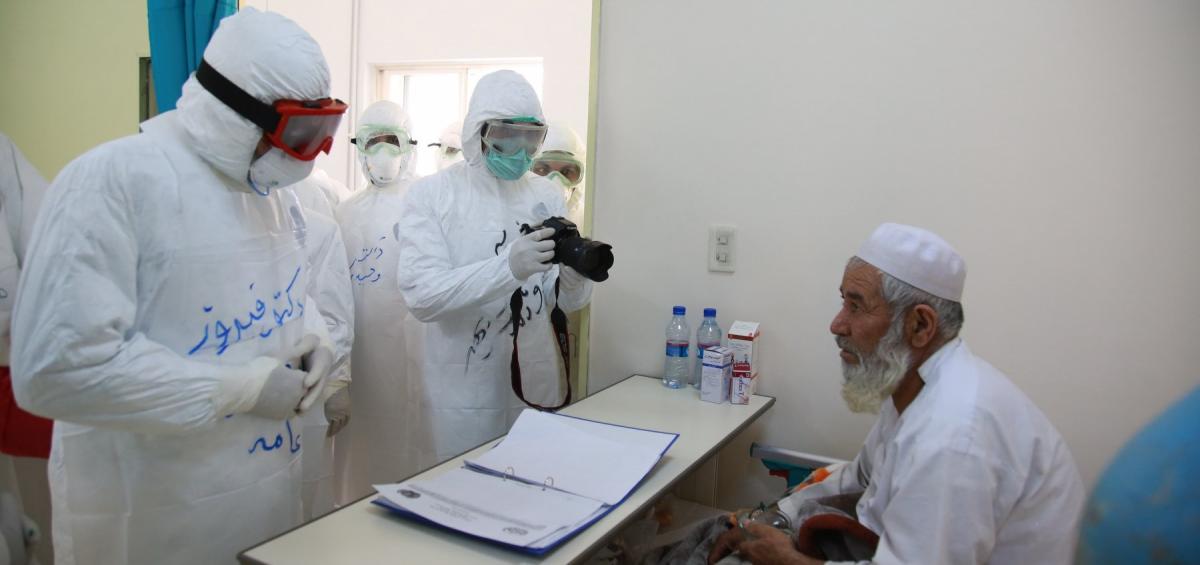
Contributing to the global response to COVID-19
Colleagues around the world have adapted their work to the current context and continue to deliver on IDLO’s mandate in some of the most complex and challenging working environments, challenges which have only expanded with the spread of the pandemic.
We aligned our efforts early in the year around three priority areas: promoting enabling legal and policy frameworks; mitigating the impact of the pandemic on justice systems and justice seekers; and advocating for continued political and financial investment and support for the rule of law.
The principles of Inclusion, Integration and Innovation remained central to our work throughout the year and are also incorporated in our new Strategic Plan.
In September IDLO published a Policy Brief on the Rule of Law and COVID-19, drawing on IDLO’s experience to set out eight concrete actions for policymakers to mitigate the current crisis, protect those most vulnerable, and promote a just, inclusive and sustainable recovery.
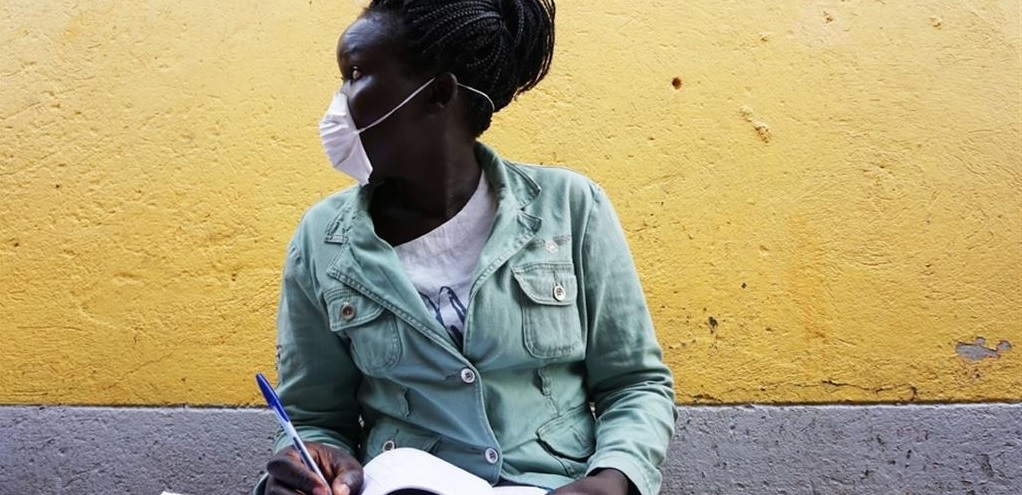
Promoting enabling legal and policy frameworks and mitigating the impact of the crisis on justice systems and justice seekers
At a time when governments around the world are faced by a daunting series of policy trade-offs and challenges, well-functioning laws and institutions can help policymakers act quickly and effectively while ensuring respect for human rights obligations and protection for the most vulnerable members of society.
Enabling legal frameworks are key to laying the foundations for a sustainable recovery. IDLO has been supporting governments in crisis management and response and providing policy advice and implementation support.
IDLO launched two initiatives to directly contribute to the emergency response in the strategic areas of managing infectious diseases and promoting food security.
The first seeks to strengthen legal and policy frameworks on pandemic preparedness and response to public health emergencies. This work, which grew out of my discussions earlier this year with the Director General of the World Health Organization (WHO), draws on IDLO’s lessons learned brief, The Vital Role of Law in the COVID-19 Response: Key lessons from advancing the right to health.
The second, in partnership with the Food and Agriculture Organization (FAO), will assess the impact of emergency laws and regulations on access to food, particularly for marginalized and vulnerable groups and women and girls. My statement on World Food Day set out IDLO’s commitment to contribute to efforts to advance the global realisation of the right to food.
Recently, we have been approached to provide technical assistance to low- and middle-income countries seeking to receive COVID-19 vaccines through the COVAX Facility established by the Coalition for Epidemic Preparedness Innovation (CEPI), WHO and Gavi, the global vaccine alliance. IDLO’s role would be to support requesting countries to meet legal obligations required to access vaccines through the COVAX Facility, thereby contributing to equitable access to these global public goods.
IDLO’s work to promote inclusive economic development through the rule of law has acquired renewed relevance and urgency in the face of the economic crisis generated by COVID-19. This is particularly the case in least developed and developing countries.
Over the past year, we worked in Armenia, the Bahamas, Jordan, Kenya, Moldova, Montenegro, Romania, Serbia, Tunisia, Ukraine and the West Bank and Gaza, to strengthen legal capacity on commercial and economic law and deal with challenges created by the economic fallout of COVID-19.
We also prioritised support to least developed countries, whose economies have been particularly hard hit by the pandemic.
For example, under the Investment Support Programme for Least Developed Countries (ISP/LDCs), IDLO-supported technical experts assisted the Government of The Gambia in securing a favourable judgement in an international arbitration case related to offshore oil licensing.
I underlined IDLO’s commitment to supporting inclusive economic growth in my policy statement at the Annual Ministerial Meeting of Foreign Ministers of Landlocked Developing Countries.
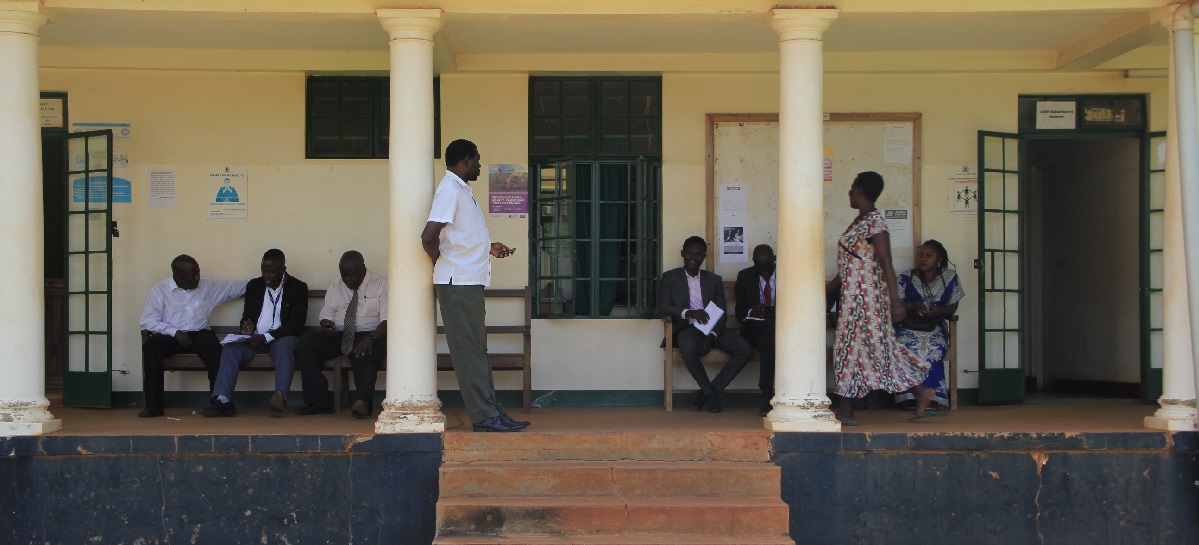
Mitigating the impact of the pandemic on justice systems and justice seekers
The pandemic has disrupted the administration of justice and access to legal remedies globally, but we have seen that the adverse impacts on the most vulnerable and those living in situations of conflict and fragility are particularly severe.
IDLO is working to ensure that the most vulnerable members of society are aware of their rights, and able to access remedies, at a time when access to public services can make a difference between life and death.
In particular, we have adapted our work on combatting gender-based violence (GBV) in several countries to address the increased demand for support and services during the current crisis.
In Tunisia, IDLO supported the development of a procedural manual for women’s shelters, which was subsequently adopted by the Ministry of Women’s Affairs to serve as an official guide for women’s shelters nationwide.
In Myanmar, IDLO developed innovative ways of reaching out to communities to respond to sexual and gender-based violence. We engaged communities and raised awareness on GBV issues through podcasts, pamphlets, videos and social media.
In Mongolia, IDLO worked with national partners to support a public legal awareness campaign, including through livestream Facebook sessions and radio and television programmes offering legal advice to survivors of domestic violence.
During the16 Days of Activism, IDLO collaborated with the World Bank’s Women, Business and Law team to raise awareness about the power of the law to respond to violence against women, a global issue which has been exacerbated by the COVID-19 pandemic.
My statement on the International Day for the Elimination of Violence against Women reiterated our commitment to continue championing a world free of violence and impunity through the rule of law.
In a number of countries, IDLO is supporting justice institutions to carry out key functions remotely, including through support for e-justice initiatives such as digitisation and automation, at a time when restrictions on movement and assembly have affected physical access to courts and tribunals almost everywhere.
In recent months, we have helped mitigate the impact of public health restrictions on justice systems by automating key processes. IDLO’s work on e-justice in Kyrgyzstan was recognized with the USAID Digital Project Award.
In Kenya, IDLO helped the roll-out of an e-filing and case-tracking system across the judiciary, contributing to improved access to justice in communities that are underserved by the formal justice system.
We are similarly working with justice institutions in many partner countries, including Afghanistan, Indonesia, Mexico, the Philippines, Rwanda, and Yemen, to enable them to deliver essential justice services and uphold the rights of individuals.
In 2020, despite the operational challenges posed by the pandemic, IDLO launched a new sub-regional programme in the Sahel.
Working with partners in the border area between Burkina Faso, Mali, and Niger, the programme aims to strengthen criminal justice chains, making them more transparent, accountable, and respectful of the rights of justice seekers.
At a time when justice systems are struggling to cope with increasing backlogs and limited access, customary and informal justice systems can play an important role.
But while they offer many advantages, these systems may also favour entrenched power inequalities and patriarchal values, and result in discriminatory outcomes for women and girls and young people.
IDLO’s engagement seeks to ensure greater respect for the rights of individuals and consistency with internationally agreed human rights norms and standards.
In Somalia, for example, IDLO is supporting eight Alternative Dispute Resolution Centres, where community leaders can help resolve disputes through the customary Xeer system in line with national laws and international standards. We have also continued to support the government to reintegrate low-risk former combatants back into their communities through rehabilitation, trainings, and traditional ‘forgiveness ceremonies’.
Programmes to advance access to justice through customary and informal justice systems are also being implemented in Kenya, Uganda, and the Sahel.
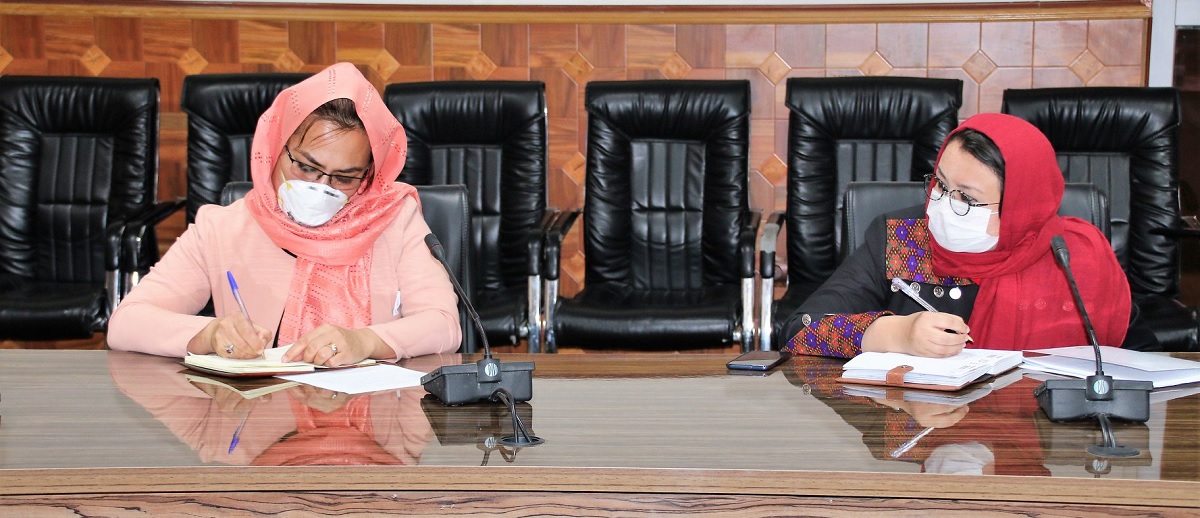
Advocating for continued political and financial investment and support for the rule of law
As global attention is focused on efforts to mitigate the health, economic and social impacts of the pandemic, we continue to advocate for investment in the rule of law and a culture of justice. This is a crucial component in building more peaceful, just and inclusive societies that reduce fragility and are resilient to global shocks, such as the current pandemic.
IDLO believes that SDG 16, as a cross-cutting enabler of peace, justice, and inclusion, should be at the centre of the global pandemic response.
My statement at the 75th session of the UN General Assembly was an occasion to reaffirm IDLO’s commitment to the values of the UN Charter, multilateralism, and partnership with the United Nations family, which has been central to my approach as Director-General.
At the United Nations’ Observance of the 25th Anniversary of the Beijing Conference, I underlined the importance of our work to promote and protect women’s human rights, remove barriers faced by women justice professionals, and eliminate gender discriminatory laws.
Having participated in the Beijing Conference myself, I noted that while progress has been made, significant work remains to be done to achieve gender equality and the empowerment of women and girls. Justice and the rule of law are critical to fulfilling the responsibilities we committed ourselves to in Beijing.
Another important priority at a time of growing authoritarianism and rights violations, is the symbiotic relationship between the rule of law and human rights.
In September, IDLO participated in the 45th regular session of the Human Rights Council and submitted a statement for the Council’s annual discussion on the integration of a gender perspective in its work.
IDLO and International IDEA organised an event, co-sponsored by Sweden and Italy as host countries of the two organisations, on “Democracy Day in the Time of the Pandemic: A Sustainable Response to the Global Crisis based on Multilateralism and the Rule of Law.” Participants discussed the importance of advancing the mutually reinforcing relationship between rule of law, democracy and human rights to address the interrelated social, economic, and environmental challenges posed by COVID-19.
My statement on Democracy Day expanded on these linkages and the importance of democratic governance and the rule of law.
In October, IDLO hosted the second Crisis Governance Forum, on the theme of “COVID-19 Response and Equitable Access to Health.” The discussion was opened by the Rt. Hon. Helen Clark, former Prime Minister of New Zealand and former Administrator of UNDP, following which a distinguished panel of experts and policymakers shared lessons learned from the frontlines of efforts to ensure equitable access to health services during the pandemic.
IDLO also participated as an Observer in meetings of subsidiary bodies of the Conference of States Parties to the UN Convention Against Corruption (UNCAC) which is preparing for the Special Session of the General Assembly Against Corruption planned for June 2021.
In November, at the 9th Meeting of the Special Envoys for the Sahel, organised by the Italian Ministry of Foreign Affairs and International Cooperation, together with European Union Special Representative for the Sahel, I was pleased to highlight IDLO’s work in the Sahel to a consortium of institutional actors, diplomats, regional experts and other stakeholders.
Partnerships and outreach
The pandemic has highlighted the importance of cooperation and solidarity. Over the past year, I have prioritised outreach to key stakeholders to strengthen existing partnerships, hear and learn from their perspectives, and broaden the outreach and engagement of the Organisation.
IDLO has strengthened its collaboration with governments, the organisations of the United Nations system, parliamentarians, civil society, academia, the private sector, youth, and other partners.
Before travel restrictions were introduced I was able to visit IDLO’s offices in The Hague, Geneva and New York to meet with key partners. We have also increased engagement with Rome-based international organisations, including FAO, IFAD, WFP and UNIDROIT.
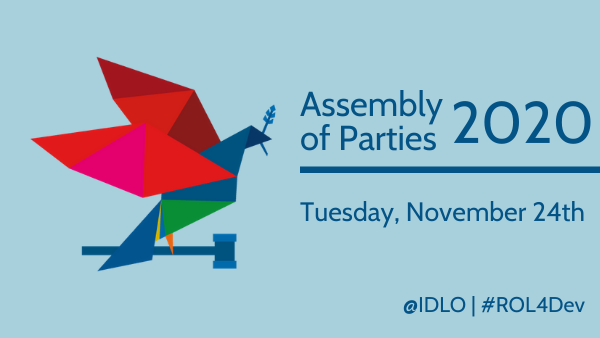
Assembly of Parties
The annual meeting of the Assembly of Parties including a thematic discussion, on 24 November, was a significant milestone in the last quarter of 2020.
The Assembly, organised in virtual format for the first time, was also my first as Director-General. I was pleased to update Member Parties, Observers and close partners on IDLO’s work, in particular our contribution to global efforts to tackle the ongoing pandemic. I also presented our new Strategic Plan 2021-2024, Management Plan 2021- 2022, and Budget for 2021, which were approved by consensus.
Elections were held for several positions on IDLO’s governing bodies. We were very pleased to welcome Pakistan as the new President of the Assembly and the United States as Vice-President, joining Italy in its role as ex officio Vice-President.
I was heartened by the strong support of all those present, which was a testament to the importance that the international community places on the need to strengthen the rule of law and access to justice in these turbulent times.
Strategic Plan
 A highlight of the Assembly of Parties was the adoption of our Strategic Plan 2021-2024.
A highlight of the Assembly of Parties was the adoption of our Strategic Plan 2021-2024.
The Plan was developed following the broadest consultation process ever undertaken by IDLO including over 90 interviews and some 20 focus groups, as well as global online consultations. It is structured around two Strategic Goals and six Strategic Objectives, based on IDLO’s commitment to putting people’s needs at the centre of justice systems and making the rule of law a driver of peace and sustainable development.
The bulk of IDLO’s work over the next strategic cycle will continue to focus on strengthening justice systems. The Plan also opens up opportunities for IDLO to contribute to the global response to complex development challenges including climate change, food insecurity and access to healthcare, through a rule of law and human rights-based approach.
Following its adoption by the Assembly, the Strategic Plan was officially launched at a high level online event under the theme of ‘Partnering to Advance the Rule of Law in Challenging Times: IDLO’s Strategic Plan 2021-2024’.
Dr. Tedros Adhanom Ghebreyesus, Director-General of the World Health Organization, provided the keynote address, in which he underscored the nexus between justice and public health, and the need for a rule of law- based response to the pandemic.
H.E. Munir Akram, President of ECOSOC, highlighted the importance of progress on SDG 16 to achieving the 2030 Agenda, endorsing the relevance of the approach taken by IDLO’s new Strategic Plan.
An interactive, high-level panel discussion then addressed the centrality of the Plan’s key themes of people-centred justice and the rule of law’s contribution to peace and sustainable development in current times, by providing examples from diverse thematic and geographic contexts.
Closing remarks were delivered by Mr. Achim Steiner, Administrator, United Nations Development Programme. He underscored the need for urgent action noting that for too many the rule of law still remains only a hypothetical possibility and welcomed the Plan’s focus on ensuring access to justice.
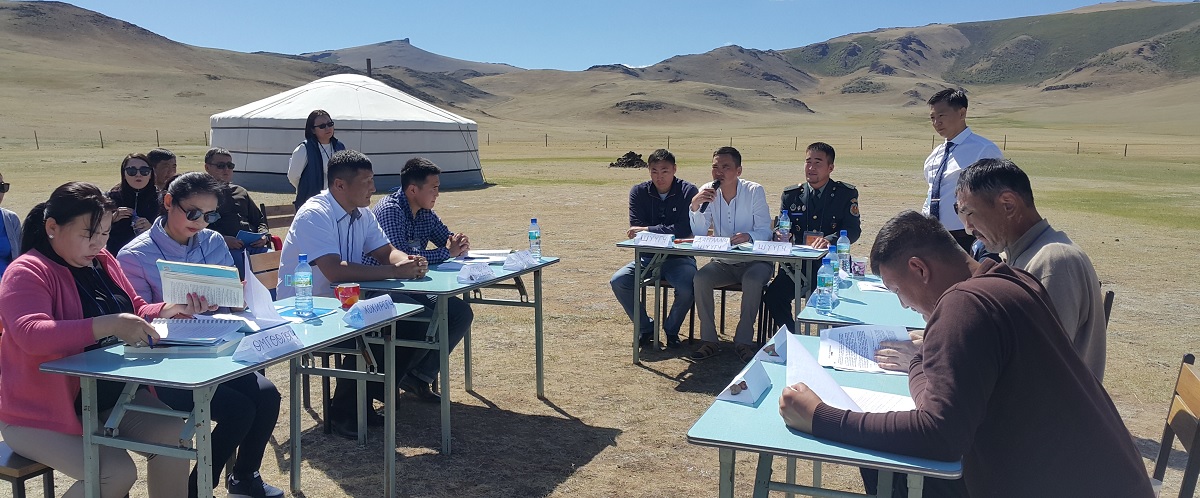
Looking ahead
The future, of course, remains uncertain.
An unequal and deeply divided world will enter the new year ravaged by COVID-19 and beset by a series of interrelated and seemingly intractable challenges including climate change, longstanding and new conflicts, and a backlash against human rights and multilateralism. As the Secretary-General recently noted, “there is a common denominator to overcoming these many tests: global cooperation.”
The 2030 Agenda, enabled by the rule of law, can promote a renewed multilateralism that delivers, and provide a framework for the international community to collaborate on shared challenges, build resilience to common threats, and chart a course for a more peaceful, just and sustainable future.
I am grateful for the support I have received from our host country, from the President of the Assembly of Parties, and from all IDLO’s Member Parties and partners during my first year. I also want to thank my colleagues around the world for their hard work, innovation and resilience during an incredibly challenging time.
IDLO’s new Strategy seeks to leverage the Organisation’s programmes, research, policy and advocacy with the goal of promoting people-centred justice and strengthening the contribution of the rule of law to peace and sustainable development.
I look forward to working in partnership with you all as we begin its implementation in the coming year.
As the world waits anxiously for the distribution of vaccines that will help us turn the page on this pandemic, I hope that we can demonstrate that investing in a culture of justice is the surest way to inoculate ourselves against future crises.
Best wishes,
Jan Beagle
Director-General
Photos from top to bottom: ©Afghan Ministry of Public Health, Facebook; ©CC_Avvenire; ©IDLO; ©Afghan Ministry of Public Health, Facebook; ©IDLO


